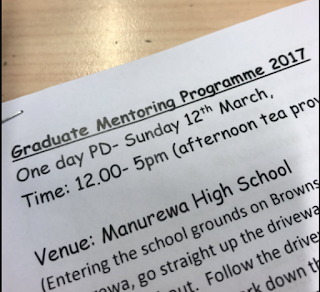 A couple of weeks ago I attended a Sunday afternoon PD organised by PENZ. The session was geared towards beginning teachers in the Health and PE field, focused around common struggles BTs have. I was unfortunately unable to attend last year, but thought the schedule looked valuable.
A couple of weeks ago I attended a Sunday afternoon PD organised by PENZ. The session was geared towards beginning teachers in the Health and PE field, focused around common struggles BTs have. I was unfortunately unable to attend last year, but thought the schedule looked valuable.
Even though I now have one year experience, it was a great reminder of some things I often do not take the time to stop and think about. We explored a variety of topics including keeping ourselves safe, marking and moderation, culturally responsive pedagogy and gathering evidence for our registration.
One key takeaway for me was the reminder of the importance of checking assessment specifications and clarification notes for NCEA assessments, something I did not do last year because I was co-teaching with an experienced teacher. In hindsight, I fear I may have put too much trust into my co-teacher when it came to creating, marking and moderating assessments. I should have regularly checked and critiqued the assessments we were using and asked questions when I wasn't sure or felt something was a little off. At the end of the day, I want my students to be successful and achieve as many credits they can, but I want it to be reliable/accurate.
This year our department is giving 110% to ensure the assessments we create are correct and enable success, and our marking and moderation is accurate. Today's session encouraged me to reflect on what I need to do this year with my Year 11s to make sure they are achieving to their best potential and are graded correctly. My students first assessment of the year is due tonight, today I have started to feel more comfortable about marking, particularly how to distinguish the difference between a Merit and an Excellence.
A huge thank you to Amy Tipene, Katie Spraggon and Ashlee Ross for running the workshop, I will be suggesting the 2018 first years to attend!


